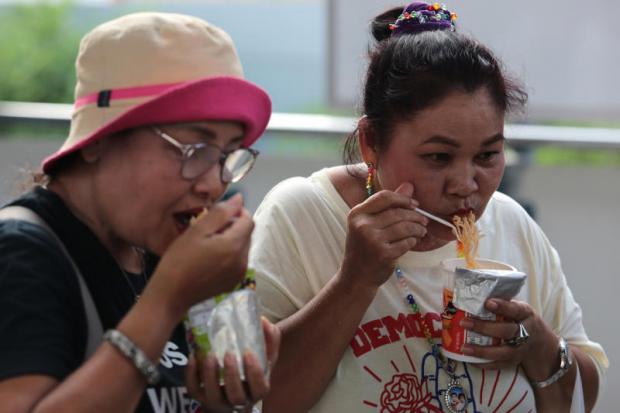
The Excise Department plans to tax ingredients that are sources of salt as part of efforts to impose levies against products that are harmful to health, its chief says.
Processed foods will not be taxed because it would not comply with the tax fairness principle if frozen foods are subject to the tax while the same foods freshly cooked by vendors are exempt, said Patchara Anuntasilpa, director-general of the Excise Department.
Taxes on high-sodium and trans fat foods are part of the department's comprehensive tax package, which is expected to seek cabinet approval by the end of this year.
The department is working out the details about a tax on ingredients that are a salt source or contain saturated fats, he said.
Mr Patchara recently said the department will offer a five-year relief period for local manufacturers to reduce salt and trans fat in foods.
The policy will offer a carrot to manufacturers who manage to cut levels of salt and saturated fat within the five-year period, he said.
A network campaigning for low consumption of sodium supports the proposed excise tax on foods containing high levels of salt and trans fat to help people avoid health problems.
Surasak Kantachuvesiri, chairman of the Low Salt Network, welcomed the proposed tax, saying if manufacturers do not want to pay higher taxes, they must reduce sodium in food products, which should help prevent illnesses such as high blood pressure, heart disease, and kidney disease.
It is also important to launch a public health campaign to encourage consumers to cut salt in their diets, Dr Surasak said.
Thais consume too much salt, about 3,500 milligrammes of sodium per day, exceeding the World Health Organization's daily recommended maximum of 2,000mg, he said.
The Excise Department expects a comprehensive tax package, including excise tax on electric vehicles, motorcycles based on carbon dioxide emissions, and high-sodium and trans-fat foods to seek cabinet approval by the end of this year.
Mr Patchara said previously foods with high sodium and saturated fat content were the next target after sugary drinks.
In another development, Mr Patchara warned that foreign tourists bringing electronic cigarettes into Thailand are violating the law.
A number of overseas arrivals have been detected bringing e-cigarettes into the country, he said.
Thai law states those who possess substances used with vaping devices for their own use are subject to a 6,800 baht fine, while the fine for commercial purposes is 12,000 baht.
Over the past three months, the Excise Department has filed lawsuits for 80 cases against e-cigarette smugglers with a combined fine of 5 million baht.
The Public Health Ministry has banned vaping devices because it is concerned they are harmful to health, said Mr Patchara.
Some embassies in Thailand have complained their citizens visiting here have been arrested for bringing in e-cigarettes, which are legal in their home countries, he said.
Vaping is legal in several countries such as Japan, South Korea, the UK, and some states in the US.
The Excise Department fetched 26.8 billion baht in the first month of fiscal 2019, missing its target by 27% and recording a 33% decline from a year earlier.
The department's fiscal 2019 revenue target is 603 billion baht.